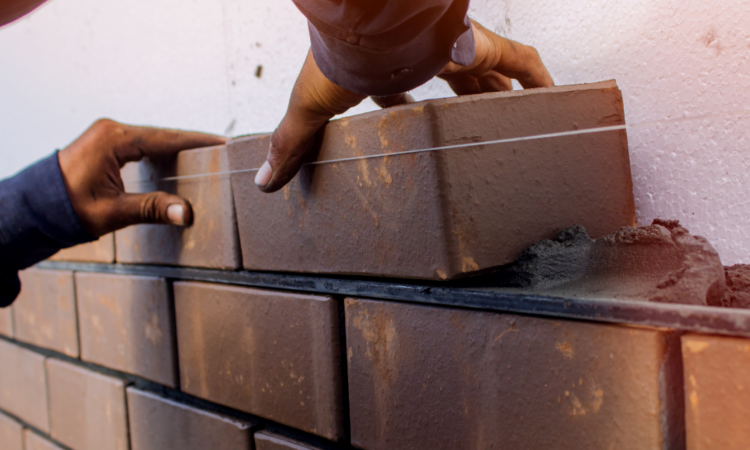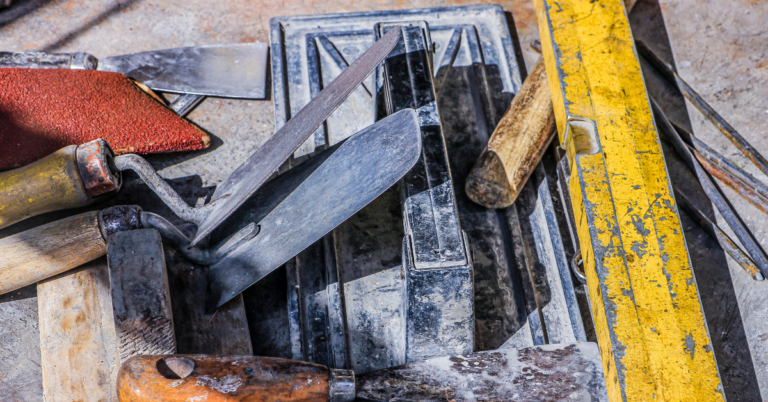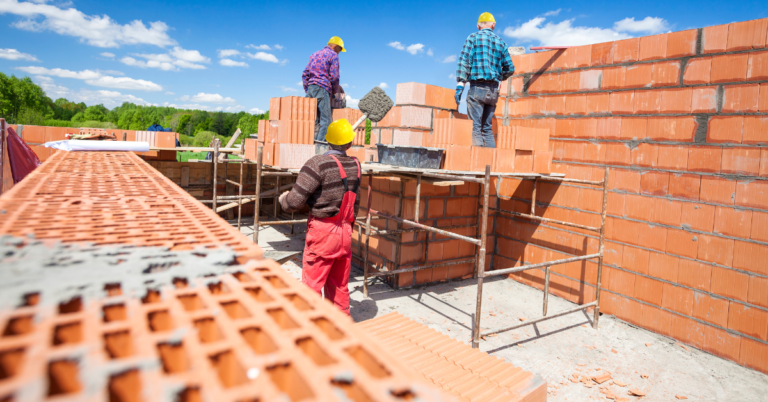What Does a Bricklayer Apprentice Do?
After doing some research on the web, we found that a lot of questions remain around what a bricklaying apprentice does, how long a bricklaying apprenticeship takes and what actually is a bricklaying apprenticeship… Read on if bricklaying apprenticeships are something you are interested in.
Bricklayers have and always will be in high demand across the construction industry. Overall, bricklayers are said to be an ageing workforce with professional bricklayers becoming more and more difficult to source. It is known that countries both nationally, and internationally have a consistently high demand for qualified bricklayers due to a shortage in supply.
Therefore, at SLBC Ltd we are committed to the continuous endowment of both adult and young-adult bricklaying apprenticeship either via College or on-site with Skills Development Scotland. Just over 20% of our workforce at the moment are bricklaying apprentices, ranging in ages from 18 to 44
Q1: What is a bricklaying apprenticeship?
A bricklaying apprenticeship is a course which results in an individual gaining their NVQ Level 2 in Bricklaying and a knowledge based BTEC diploma, qualifying the individual to build either on behalf of a company or as a self-employed subcontractor. Which takes us on to the next question, how long does a bricklaying apprenticeship take? In short, it depends.
It depends on both your employer and your level of experience on which route to take in relation to a bricklaying apprenticeship. If you have no previous site experience, you are likely to be enrolled in bricklaying apprenticeship college course, the course takes place on a part-time basis over four-years to allow the time for both studying and working on site. This form of bricklaying apprenticeship, is a modern apprenticeship facilitated by Skills Development Scotland and Construction Industry Training Board (CITB); upon completion of the course you will obtain your NVQ Level 2 in Bricklaying.
The other path to becoming a fully-qualified bricklayer is the two-year Trowels Occupation Qualification which is facilitated by a variety of training providers. SLBC’s training provider for the apprentices gaining their qualification this way is Competence Matters. This course is shorter because those who take this path will be required to have previous construction experience i.e., bricklayer’s labourer.
If you have no previous site experience, you are likely to be enrolled in bricklaying apprenticeship college course, the course takes place on a full-time basis over four-years to allow the time for both studying and working on site. This form of bricklaying apprenticeship is a modern apprenticeship facilitated by Skills Development Scotland and Construction Industry Training Board (CITB); upon completion of the course, you will obtain an SVQ in Trowel Occupations (Construction) – SCQF Level 6.
It’s important to note that both courses allow you to obtain the same qualification, its your own experience and your employer which help you choose the correct path to becoming a fully qualified bricklayer and obtain qualifications to work on behalf of a construction company or as a self-employed subcontractor.
q2: What does a bricklaying apprentice do?
Most of our apprentices at SLBC are completing the two-year Trowel Occupations Course as many of them had prior experience either labouring or working on site, you can read more about SLBC’s apprentices here. But what does a bricklayer apprentice do? Well, normally at SLBC, they are allocated a squad with an apprentice trainer, this is usually the squad they will stay with until they are qualified.
When completing the four-year course, initially, the apprentice is assigned to a local college, enrolled there for induction, and given a basic overview of the course. You are then introduced to your squad and apprentice trainer, often this squad is where you stay until you are qualified. This allows you to forge robust working relationships with others in your squad, whilst learning from those around you who pass their own experience on.
When completing the two-year course, the apprentice will often already be working on an SLBC site with a squad and will have gained solid experience on a site with a background in bricklaying. In this instance, they will be moved to our apprentice squad to be trained by our SLBC Apprentice trainer. Each day is different, we can’t speak for every company but at SLBC we work with a variety of established homebuilders on some of the biggest sites in Scotland, so the experience you can gain with us is invaluable and at times, unmatched.
Q3: Do you need a bricklaying apprenticeship to become a bricklayer?
In short, yes. To become a fully qualified bricklayer you must firstly obtain the qualification. Without the qualification you cannot claim to be a fully qualified bricklayer. Most sites will ask for your CSCS card to prove your level of qualification. So, if you were an apprentice bricklayer, you would receive a red card until you sit your skills test at the end of your studies, from which you would be looking to obtain your Blue Skilled CSCS Card. See more about which type of CSCS cards we use at SLBC here.
See the definitions of what each colour of card means below in our infographic, note: this picture is not exhaustive, these are just the most common to SLBC.

Q4: How much does a qualified bricklayer make in terms of salary?
Becoming a qualified bricklayer is a career with high earning potential; the average bricklaying salary in the UK is around £31,800 gross. Not to mention, bricklaying jobs pose many opportunities for continuous professional development. And despite a continuous push into university for our young adult sin society, a bricklaying apprenticeship is a fantastic way to start a career. That is why we have our very own Construction Industry Ambassador, Libby, who takes the time to visit colleges and schools to promote life-long careers within our industry. In an industry where bricklayers are in high demand but short supply, you will never be without work. And that’s why, for the above reasons, SLBC Ltd will always promote careers in bricklaying.
We hope this post has brought some more clarity to those still unsure if pursuing a bricklaying apprenticeship is the route you want to take.
Featured Blog Image Credit: Canva.







